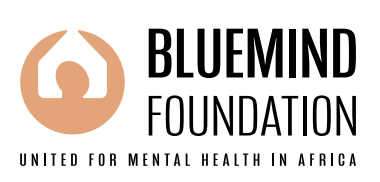Shortage of skilled birth attendants threatens lives of mothers, newborns in Northern Nigeria
A shortage of skilled birth attendants in Kano’s rural communities is slowly turning life’s most precious moments into tragedies, increasing concerns of maternal and infant mortality. African Newspage visited communities in Gwarzo, Tofa, and Ungogo Local Government Areas (LGAs), uncovering devastating stories of mothers and babies lost during childbirth.

Amina Babangida’s story is one of resilience and determination. Three years ago, she began her married life in Yar Kasuwa village, Gwarzo LGA, with dreams of building a big family. Her joy knew no bounds when she conceived twins in her first year of marriage. Her happiness was short-lived as the harsh realities of life began to unfold.
When Amina went into labor, at Yar Kasuwa Primary Health Center (PHC), a facility just a stone’s throw away from home, there was no one to turn to, the facility offered no solace. The PHC, plagued by inadequacy left her no with no option but to endure excruciating pain of trekking to Gwarzo General Hospital 4 kilometers away to birth her twins.
With one midwife and no delivery facilities, Yar Kasuwa PHC is ill-equipped to handle deliveries. Tragically, women in labor are forced to choose between walking to Gwarzo General Hospital or seeking help from untrained Traditional Birth Attendants (TBAs).
Amina’s hour-long trek to Gwarzo General Hospital was a race against time. Every painful step echoed her helplessness., but her urgency was overshadowed by the inadequacy of Yar Kasuwa PHC. By the time she reached the hospital, it was too late—the fate of one of her twins have been sealed, he died.
“The loss was unbearable. This PHC feels like it serves no real purpose to me or the other women here. My baby’s death could have been prevented if the center was functional, if there was a midwife on-sight who could have helped me deliver, whether at home or at the center,” Amina said.
Amina’s pain deepened as she recalled the doctor’s words—her baby died because of the stress her body endured during the long trek to Gwarzo. Photo: Stephen Enoch
“I still imagine the scene in my mind, holding one living twin while the other is gone. The hardest part is knowing it didn’t have to be this way; if Yar Kasuwa PHC was equipped to deliver my baby or had a good referral system, the story would be different. Alhamdulillah, at least I survived, and one of my babies survived,” she said, with a mix of sorrow and gratitude.
Aisha Mohammed, 44, still grapples with the loss of her friend, who died during childbirth two years ago, shares Amina’s frustration. “Yar Kasuwa PHC is a nightmare. We lost a young woman due to complications after traditional birth assistant (TBA) assisted delivery. With proper equipment and midwives, we wouldn’t be burying our women and children from preventable deaths.”
Research by Nigeria Health Watch conducted in 2020 shows that only 21.5 percent, or roughly two in ten deliveries in Kano, were overseen by skilled birth attendants. Another study by the development Research and Project Center (dRPC), highlighted that less than half of the urban population and fewer than 40 percent of rural residents have access to healthcare services. These data corroborate Amina and Aisha’s stories.
The PHC official speaking anonymously said the facility ought to have been upgraded a longtime ago because it is the major center that residents rely on in Gwarzo Ward. “We have cried out to the Primary Healthcare Management Board (PHCMB) that we want the center to be expanded so that we can create a maternity ward, but this hasn’t been done,” the source disclosed.
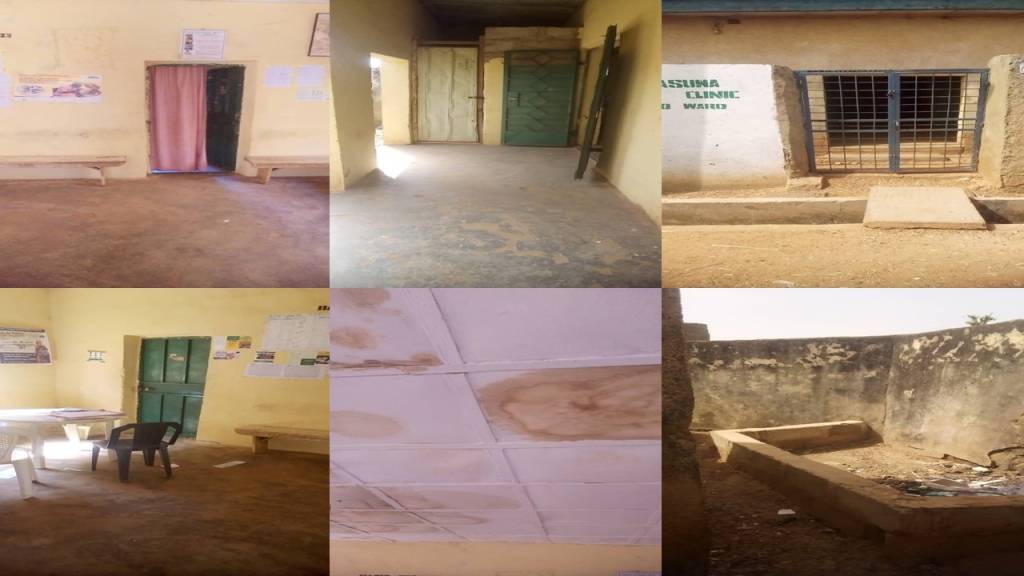
Home Deliveries on the Rise
There is a growing trend of home deliveries in Doka village, Tofa LGA, a dangerous gamble in a state already struggling with high maternal and infant mortality rates. This is shown in 2021 statistics by the Kano government, where the state recorded a maternal mortality rate of 1,025 deaths per 100,000 live births.
As the PHC’s condition deteriorates, women in Doka are left to fend for themselves. Either they give birth at home with the help of untrained TBAs, which is unsafe, or they travel kilometers away from their village to birth their babies.
A Nightmare Journey
It was around 9:30 pm on a Saturday night that Umma Suleiman’s water broke. The sudden onset of labor caught her off guard, but what troubled her more was the realization that Doka PHC was not operational at night. Her only choice is to seek help elsewhere, i.e journeying to Tofa Health Center. The road to Tofa was dark, and the urgency of her situation heightened her anxiety.
Umma couldn’t help but fear for the life of her unborn child. Each bump in the road felt like a threat, her thoughts racing through the worst-case scenarios. According to her, the hours felt like days, her breathing was shallow as her body fought against time. By the time they arrived at the Tofa PHC, it was clear that her baby was in distress, and Umma herself was exhausted, both physically and mentally, her body racing against time
“I nearly lost my child, but I am happy I didn’t. The medical team acted quickly upon my arrival, working through the night to ensure that myself and the baby survived the ordeal. My experience was a reminder of how some women in my village died in similar situations. Most women no longer depend on the PHC,” she narrated.
Hassana Ali, a 36-year-old mother, echoed Umma’s experience, alleging that the facility operates without proper medical staff. “Most of the staff there are interns. They can’t handle complicated cases like a professional would. That is why I stopped visiting the facility. Worse still, there are no midwives to deliver our babies, forcing us to rely on the services of Ungawarzoma (TBAs), she said.
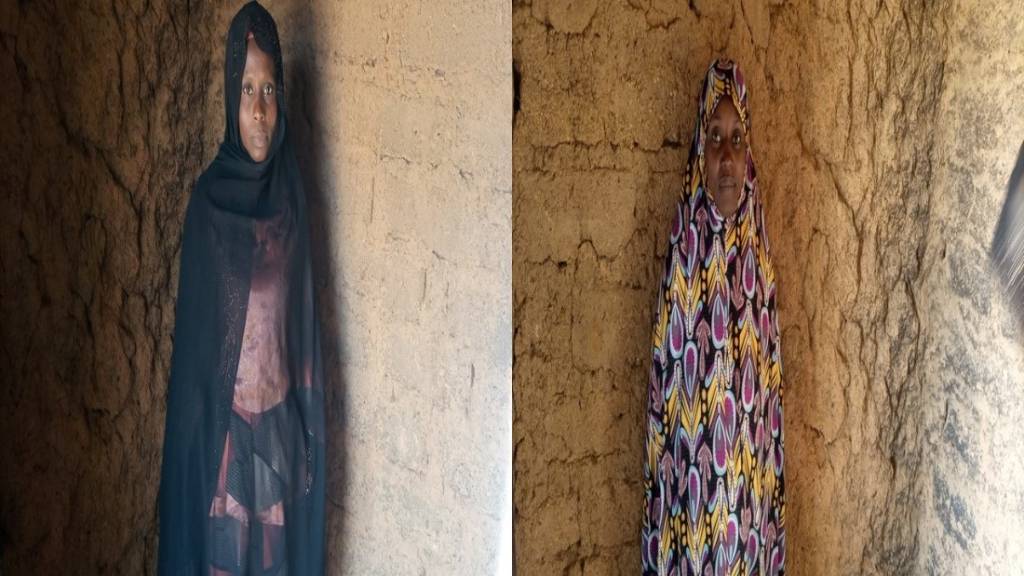
Despite its obvious shortcomings, the Doka PHC has excels in one important area: immunization. Hassana and Umma praised the facility’s consistent and free vaccination services for children. “Every Monday and Tuesday, the PHC provides free immunizations for babies.”
Allegations against Doka PHC’s Management
Safiya Garba, who was once a volunteer midwife at the PHC, reminisced about its early days when the center had so many staff and volunteer midwives. She said the medical staff were keen about reducing the occurrence of maternal and child mortality, pointing out that when the new management came on board, things changed, as staff’s efforts were no longer being rewarded. As a result, the facility lost many of its dedicated midwives.
“Initially, the facility used to handle deliveries. The new management started closing the facility’s operations at 2pm and stopped rewarding the efforts of the workers and everything crumbled. We were been paid some token of appreciation and the management was very good but when the management changed things also changed and there was no support, so we decided to leave,” Safiya recounted.
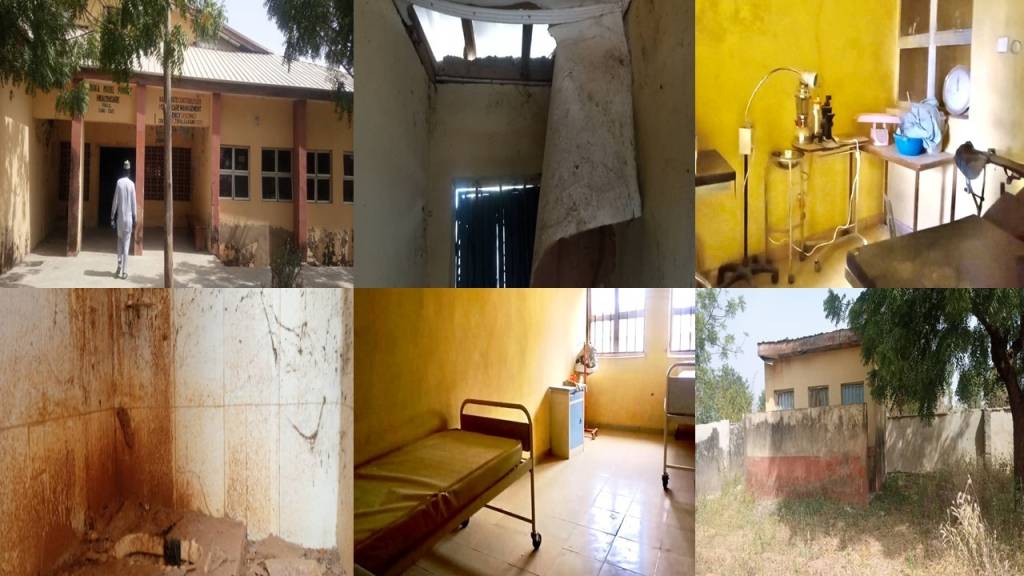
While Abdulkadir Sani, the Officer in Charge (OIC) at Doka didn’t deny the allegations labelled against his leadership of the facility, he blamed it on the paucity of funding, pointing out that although the Basic Health Care Provision Fund (BHCPF) program provides some financial support it’s not enough to run the center effectively.
“Women often prefer to deliver at home but when complications arise, they end up coming here. By then, it is sometimes too late for us to help. We are also short-staffed and need more resources to operate 24 hours,” he admitted.
Midwives Crisis as 400 Set to Retire in 2024
A source at the National Association of Nigeria Nurses and Midwives (Kano Chapter) who spoke to this reporter under the condition of anonymity revealed that over 400 nurses and midwives in the state are set to retire by the end of 2024, raising an alarm that even the current number of these categories of healthcare workers across the state is not more than 1,200, a figure that is grossly inadequate.
According to the source, “The midwives, especially those in rural communities, are unsatisfactorily low, and this poses a lot of challenges to the health of women and children. We have not seen any proactive step by the government to employ more people to make up for this inadequacy. There will be a lot of setbacks if this issue is not urgently addressed by the government,” the source said.
As of 2023, reports by the United Nations International Children Emergency Fund (UNICEF) indicate that less than 25% of deliveries in the region are attended by skilled health personnel, significantly below national targets and global standards for maternal health.
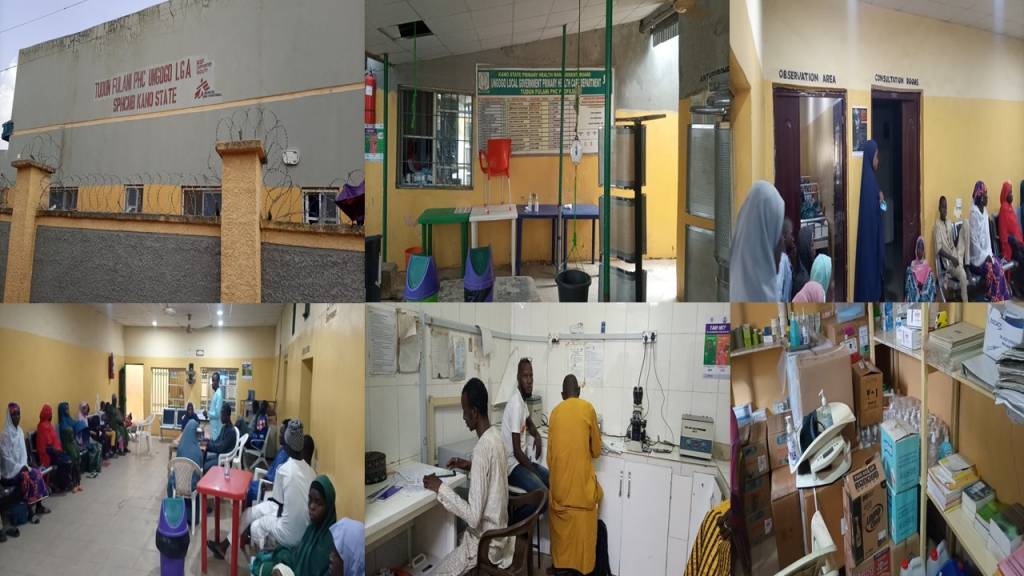
Despite Challenges, Ungogo PHC thrives Thanks to Strong Community Support
Despite facing various challenges, Ungogo PHC, located in Tudun Fulani Community of Ungogo Local Government Area (LGA) has become a model PHC in the LGA community, ensuring that families enjoy quality access to healthcare when they need it the most. On this sunny Friday afternoon, 28-year-old Maryam Musa stepped into the maternity ward at the Ungogo PHC, ready to welcome her fifth child.
As she handed her hospital card to a healthcare worker, Maryam paused to speak with this reporter. She stated that the PHC has been her chosen place for all her deliveries, having brought four children safely into the world here, and she was about to add a fifth.
“What sets this PHC apart is its commitment to treating everyone with respect and equality, regardless of background or financial status. This dedication has earned my trust and that of countless other women in the community who feel valued and respected in their time of need.
“Whether you’re poor or rich, they welcome you with open arms. The staff here are like family, and they keep the environment clean. Even after my previous deliveries, they would come and check on me at home occasionally to make sure I was okay. They do this for all women, which is why we hold this place in such high regard.”
What other PHCs can Learn from Ungogo PHC
Abdulrahman Zubairu, Officer In Charge of Ungogo PHC, explained that community engagement plays a vital role in building trust and delivering quality healthcare adding that feedback and recommendations from the community are channeled directly through trusted traditional and religious leaders, whose voices help bridge the gap between the PHC and the community.
“Our active referral system ensures that when a case is beyond our capacity to handle, we refer patients to facilities that can provide the necessary care. We never refer to a private facility. The center’s leadership structure is responsive and patient-focused. Whenever issues or complaints arise, staff investigate the root causes, implementing solutions to prevent them from reoccurring,” he explained.
One of the PHC’s standout practices and what many consider its “secret to success” is the personalized services offered to patients. After treatment, Community Health Extension Workers (CHEWs) are sent to patients’ homes for follow-up visits which allow the center to monitor patients’ recovery progress, extending care beyond the facility’s walls and reinforcing the center’s dedication to holistic and compassionate care.
“Consistent Advocacy Panacea Against Maternal Mortality” – KanSLAM Co-Chair
Pharmacist Maimuna Yakubu, Co-Chair of the Kano State-led Accountability Mechanism (KanSLAM), identifies consistent advocacy to the government as the most effective strategy to ensure that Kano state deals with the issue of shortage of midwives and ultimately ameliorates maternal and child mortality in the state.
“Recently, we conducted a series of spot-checks in facilities, discovering a lot of gaps. Following that, we produced an evidence-based report which we presented to the State Primary Health Care Management Board (SPHCMB). We did not stop there; we also took up the matter with MDAs responsible for providing solutions and saw results. Non-stop advocacy is the best way to get results,” she stated.
More facilities will be upgraded soon, government assures
Dr. Bashir Sunusi, director in charge of planning, monitoring, and evaluation at SPHCMB acknowledged that some of the facilities do not have the capacity to handle child deliveries but assured that plan is underway to renovate and upgrade the various facilities in the state. Through Sector Wide Approach (SwAP), the state seeks to aggregate all healthcare funding support into one basket so as to have substantial funding to revamp the various PHCs..
“Recently, we engaged 135 midwives who were posted to BHCPF facilities. An assessment has been conducted for PHCs in the 484 wards in Kano, and the requirement for these centers to run effectively has been taken into cognizance. So, the facilities will be renovated and equipped with the manpower to serve the communities. Our plans have been concluded, and very soon the implementation will begin,” he guaranteed.


